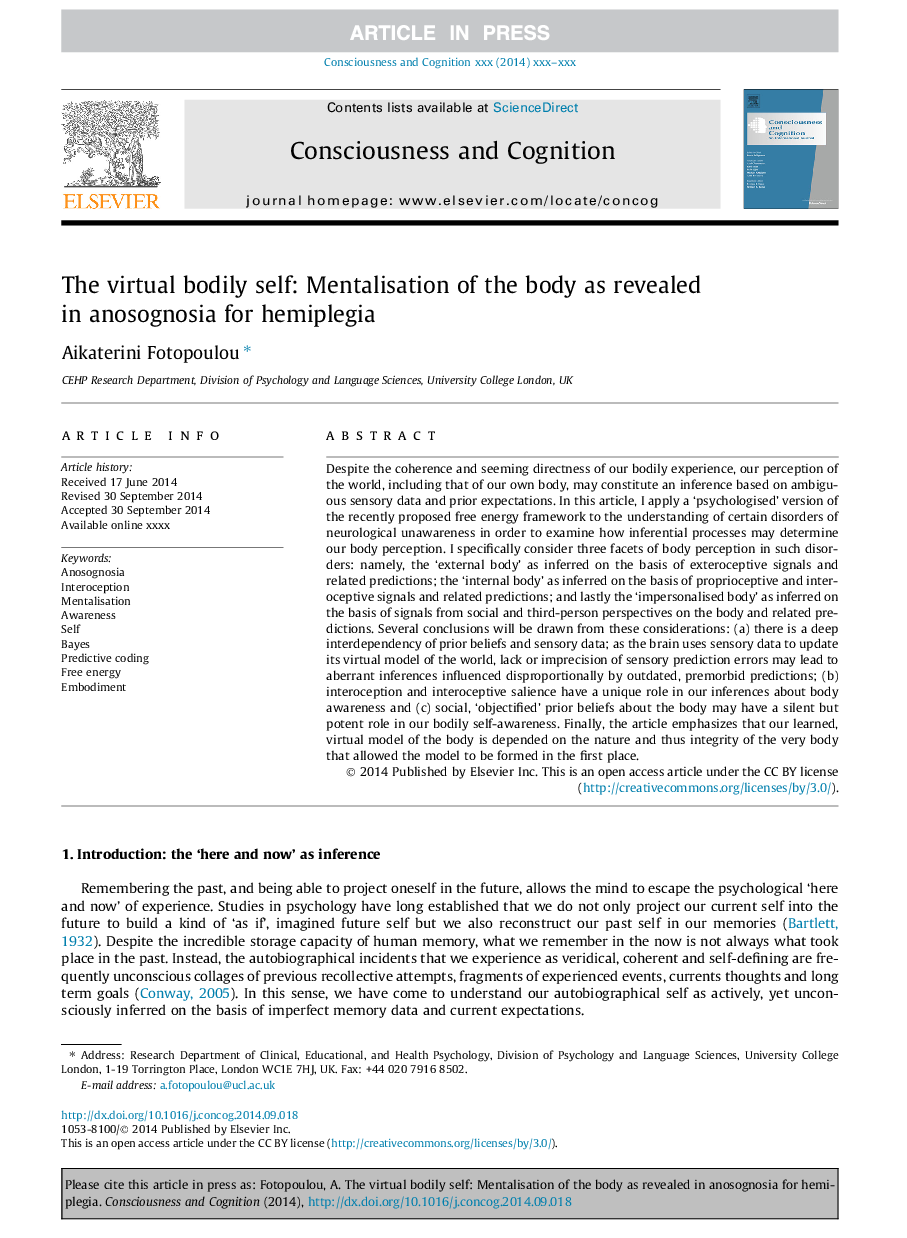| Article ID | Journal | Published Year | Pages | File Type |
|---|---|---|---|---|
| 7289367 | Consciousness and Cognition | 2015 | 11 Pages |
Abstract
Despite the coherence and seeming directness of our bodily experience, our perception of the world, including that of our own body, may constitute an inference based on ambiguous sensory data and prior expectations. In this article, I apply a 'psychologised' version of the recently proposed free energy framework to the understanding of certain disorders of neurological unawareness in order to examine how inferential processes may determine our body perception. I specifically consider three facets of body perception in such disorders: namely, the 'external body' as inferred on the basis of exteroceptive signals and related predictions; the 'internal body' as inferred on the basis of proprioceptive and interoceptive signals and related predictions; and lastly the 'impersonalised body' as inferred on the basis of signals from social and third-person perspectives on the body and related predictions. Several conclusions will be drawn from these considerations: (a) there is a deep interdependency of prior beliefs and sensory data; as the brain uses sensory data to update its virtual model of the world, lack or imprecision of sensory prediction errors may lead to aberrant inferences influenced disproportionally by outdated, premorbid predictions; (b) interoception and interoceptive salience have a unique role in our inferences about body awareness and (c) social, 'objectified' prior beliefs about the body may have a silent but potent role in our bodily self-awareness. Finally, the article emphasizes that our learned, virtual model of the body is depended on the nature and thus integrity of the very body that allowed the model to be formed in the first place.
Keywords
Related Topics
Life Sciences
Neuroscience
Cognitive Neuroscience
Authors
Aikaterini Fotopoulou,
